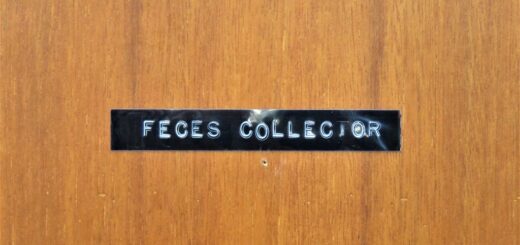Macron Demonstrates What Mediating Between Tyranny and Freedom Really Means
Poland has been Ukraine’s most stalwart ally during that country’s war of self-defense against Vladimir Putin’s empire-building invasion. Poland is the country to which most Ukrainian women and children flee, and where they are accepted and cared for, during the horror of Putin’s wanton destruction. Poland was the Soviet satellite nation that rebelled most effectively against the communist empire at the moment of truth, thanks to the combination of Pope John Paul II’s inspiration and the Solidarity movement’s open defiance of government authority. Poland is also, of course, one of the countries with the most obvious vested interest in thwarting Putin’s expansionist dreams right now, before it is their turn to watch their cities decimated and their children kidnapped.
And so this would be an especially poor time to launch an accusatory ad hominem attack against the Polish government, particularly one portraying that country in terms plainly suggestive of the very same “anti-Nazi” rhetoric that Putin himself has used to smear Ukraine’s government and to rationalize his invasion. But this was precisely the language employed this weekend by Putin’s number one Western message boy, Emmanuel Macron, to describe the Polish government.
Poland is frustrated, as all rational people ought to be, with those Western voices seeking to palliate Putin with compromises, negotiations, and cease fire talks in which “both sides must come together and make a good faith effort to end the fighting” — as though the invaded country owes the invader any face-saving concessions whatsoever. In this context, desperate for some sort of willpower and unified defiance against Putin’s tyranny to emerge from the bureaucratic foot-dragging of their allies, Poland’s prime minister, Mateusz Morawiecki, issued the following criticism of his French counterpart:
President Macron, how many times have you negotiated with Putin? What have you achieved?… Would you negotiate with Hitler, with Stalin, with Pol Pot?
The language of this rhetorical question, though blunt, is not personal, but properly political. It is a serious challenge, on historical grounds, to Macron’s insistence that working with Putin, compromising with him, or satisfying his needs, is in any way reasonable. Morawiecki is raising the legitimate question: Can negotiating with an aggressive tyrant bent on empire expansion lead to any result other than the increased empowerment, prestige, and confidence of the aggressor?
This tough but fair question, all the more understandable given the urgency of the stakes Poland has in this situation, was met by Macron, who was feeling the heat of a re-election campaign, referring to the Polish prime minister as “a far-right antisemite who bans LGBT people” — apparently willing to toss his standard campaign rhetoric against his own main rival, Marine Le Pen, at anyone who dares to disagree with him.
The message boy has no rational justification for his mealy-mouthed weakness in dealing with Putin (I have previously explained his psychology in this situation), so he lashes out against his critic with a smear worthy of Putin’s own remarks about the Ukrainian government. In so doing, of course, he is giving Putin rhetorical ammunition, since his comments can easily be used to reinforce Putin’s propaganda claim that Russia is not an invading oppressor but a crusader against “nazification” and “nationalist extremists.” Those terms may now be directed against Poland too, thanks to the loose lips and cowardly back-stabbing mind of the message boy.
Macron will likely win re-election in a run-off against Le Pen. Of course, France offers no reasonable alternative — reasonableness, in France as almost everywhere else, having now been all but redefined as moral weakness and lack of principle.


